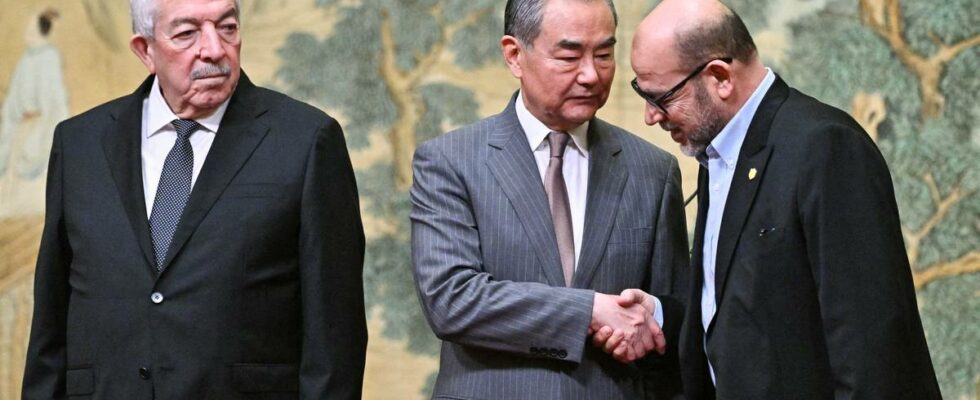In the last couple of days, representatives from 14 Palestinian groups have gathered in China’s capital, Beijing. Both Fatah, which rules the West Bank, and Hamas, which rules the Gaza Strip, were present. On Tuesday, they signed a new agreement: the “Beijing Declaration”. A new Palestinian “reconciliation government” will be established, Chinese Foreign Minister Wang Yi announced. – The agreement is another positive step towards achieving a united Palestine, said Hamas leader Hussam Badran in a statement reproduced by Reuters. He emphasized that the Gaza war makes the timing extra important. Representatives from a total of 14 Palestinian organizations participated in the negotiations in Beijing. They ended by signing the “Beijing Declaration” on Tuesday. Photo: PEDRO PARDO / Reuters Divided politically and geographically The Palestinians are divided. Geographically, Israel is located in the middle between the small Gaza Strip and the larger area known as the West Bank. But also political. About 20 years ago, a conflict broke out between the governing party Fatah and the fundamentalist Islamic organization Hamas, which has been behind a number of terrorist attacks. In 2006 has ruled the Gaza Strip ever since. This resulted in Israel, together with Egypt, imposing a blockade of the area. Fatah continued to rule in the West Bank. Historian Erik Skare researches topics related to Palestine and the Middle East at the University of Oslo. He believes the so-called Beijing Declaration could be a step in the right direction. – There have been several attempts at Palestinian reconciliation, but none have fully progressed. The Middle East researcher believes that a unified Palestinian authority is crucial to bringing about a new Palestinian democratic election. But there is a big stumbling block on the outside of the agreement, Skare clarifies. Postdoctoral researcher Erik Skare believes that an actual reconciliation between Palestinian groups is closer now than ever. Photo: UiO Namely that Israel has made it absolutely clear since 2006 that it does not want to negotiate with a Palestinian unity government that includes Hamas. Israel’s foreign minister, Israel Katz, reacts to the fact that Fatah wants to cooperate with Hamas, and believes that a united government will never be realised. – In reality, this is not going to happen, because Hamas’s rule will be crushed, and Abbas will have to watch Gaza from a distance, says Katz on Monday, who adds that Mahmoud Abbas, president of the Palestinian Authority, is thereby showing “his true face”. Long-term involvement China has recently played an increasingly important role internationally. Many believe that China wants to challenge the US on the world stage by taking a more active role as a mediator and problem solver. The role they have played in negotiating the recent “reconciliation government” agreement only fits into this puzzle, says China expert Hans Jørgen Gåsmyr at Nupi. But other factors are perhaps at least as important. – China has a long and historic commitment to Palestine’s cause, says Gåsemyr to news. – They have a legitimacy in relation to being a long-term champion of a free, independent and sovereign Palestine. Coupled with the fact that they have a tradition of maintaining contact with several sides, especially the two that have come together, he says, referring to Fatah and Hamas. – Little to lose It helps that Palestine and the Middle East, unlike other conflicts, are far away from China. This makes the situation less complex and inflamed for China than in conflicts linked to countries such as Russia, India and Japan. By participating in negotiations, China has forged ties with the region and Arab leaders. But China is not doing this out of pure altruism, admits Gåsemyr. China has both economic and political interests in that region. – It affects many Chinese interests in terms of trade, investment and access to energy, but also as a growing global and diplomatic power. – China has a lot to gain and little to lose. Listen to the foreign affairs editor’s podcast: Published 23.07.2024, at 13.31
ttn-69
Palestinian groups signed government agreement in China – news Urix – Foreign news and documentaries

